If you’re spending way too much time trying to figure out if your FSA or HSA can cover semaglutide but coming up with zero concrete answers, you’re not alone. The info online can be murky and a little vague at times. The short answer is yes, but there’s more to it than that.
These GLP‑1 injections (like Ozempic and Wegovy) are amazing for weight loss, but they’re also super expensive. There’s gotta be a better alternative, right?
Correct.
So, I’m breaking down exactly how FSA/HSA coverage works for semaglutide, what other weight‑loss treatments qualify, and how to maximize your benefits while keeping your budget (and health) on track. Let’s get to it!
Topic Contents
The Short Answer
Yes, semaglutide is usually FSA/HSA eligible, but only when it’s prescribed for a medical condition like obesity or diabetes, sorry. It’s not just for general weight loss. If your doctor writes a prescription and you have a Letter of Medical Necessity (LMN) that clearly shows your medical need (e.g., BMI ≥30 or weight-related condition), you can use pre‑tax HSA or FSA dollars at most standard pharmacies.
And the same goes for other GLP‑1s and weight‑loss meds, just as long as it’s medically necessary and prescribed. They have this parameter in place to prevent everyone from doing it and rushing to get the drug for weight loss and creating an unmanageable demand.
You can’t just go to the FSA Store site and buy the products, either. You have to go through their program and process to access the many weight loss products.
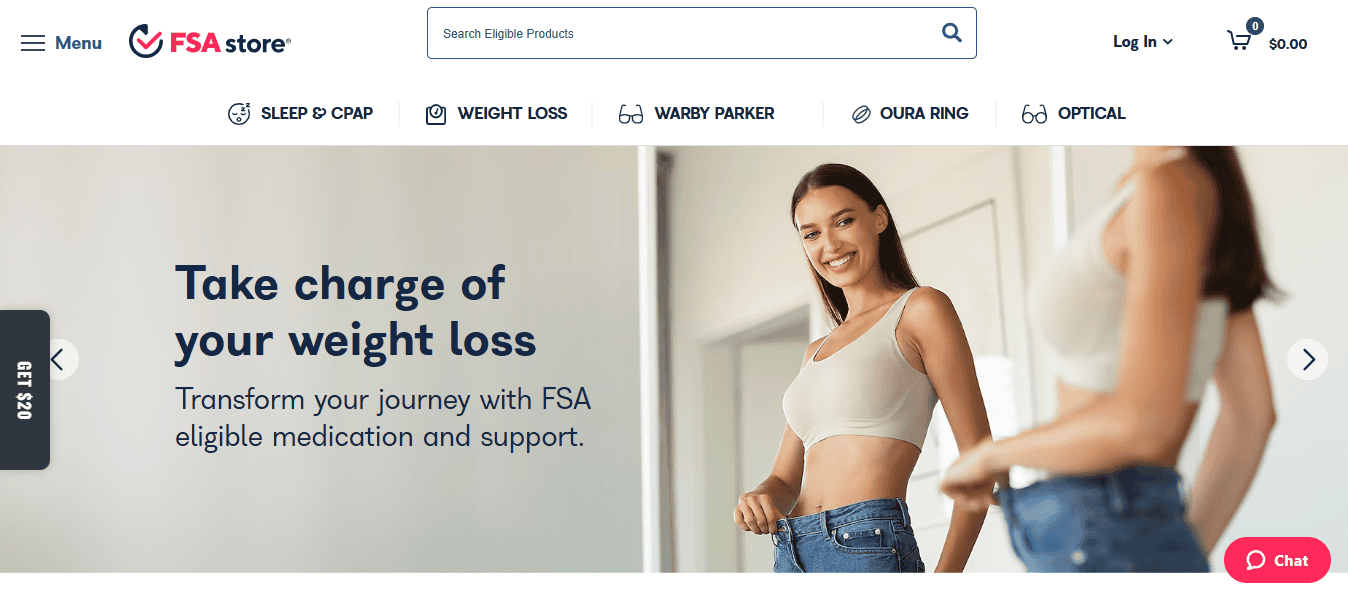
How FSAs & HSAs Work for Medications
It’s not always easy or simple, but if you can find a doctor to work with and listen to you, then you should be able to get a prescription and LMN.
What You Need: Prescription + Medical Necessity
Semaglutide has to be FDA‑approved and prescribed by a real healthcare provider, which makes it a qualified medical expense. Usually, Medicare/HMO plans require prior authorization or an LMN to confirm the medical reason (obesity, diabetes, etc.).
Spending vs. Reimbursement
You can pay for everything directly with your FSA/HSA debit card at places like FSAStore.com, CVS, Walmart, Amazon, etc., or buy it and submit a receipt for reimbursement later. Whatever works best for you.
How to Use Your FSA/HSA for Semaglutide
There’s a process to it but follow these steps and you’ll be well on your way to using those FSA dollars to get your weight loss meds.

1. Chat with your doctor:
Ask if semaglutide is appropriate for your condition (type 2 diabetes or obesity). If it’s a yes, request a formal prescription.
2. Get Your Letter of Medical Necessity (LMN):
Your doctor has to explicitly outline why semaglutide is medically necessary (e.g. A1C level, BMI threshold).
3. Choose your pharmacy carefully:
Online, walk-in, mail-in, or compounding pharmacy. They can all accept FSA/HSA cards. Some discount chains may bill you directly, though.
4. Use your FSA/HSA card upon pickup:
Keep all your medical receipts, LMNs, and pharmacy records. I actually scan/store them electronically.
5. Submit for reimbursement (FSA only):
If the pharmacy can’t process your FSA card directly, file a claim through your plan’s portal or app. Some FSAs need itemized receipts and LMN uploads.
6. Monitor your pharmacy statements:
Check and make sure line items clearly reference prescription codes that match your receipt. This is for tax proof.
Can You Use FSA/HSA for Other Weight-Loss Meds?
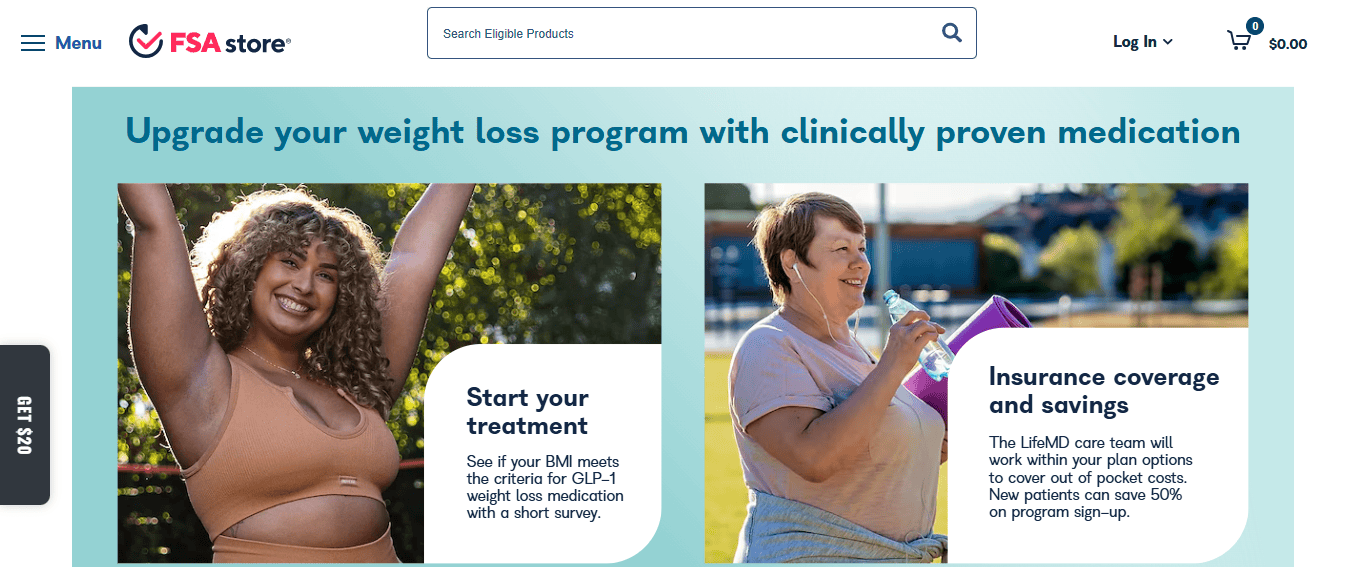
Actually? Yes! Just as long as the medication is prescribed for a specific medical condition, not just general health or appearance. Most of the common eligible prescriptions include:
- GLP‑1 receptor agonists (Wegovy, Ozempic)
- Tirzepatide (Zepbound)
- Liraglutide (Saxenda)
- Phentermine/topiramate (Qsymia)
- Naltrexone/bupropion (Contrave)
- Even devices like Plenity, or adipex/contraceptives
But keep in mind that OTC weight-loss supplements and gym memberships aren’t eligible, even if they’re doctor‑recommended.
Comparing Weight-Loss Drugs & HSA/FSA Eligibility

Here’s a snapshot of popular weight-loss medications, whether they’re HSA/FSA eligible, and how much they typically cost:
| Medication | Approved For | HSA/FSA Eligible? | LMN Required? | Approx. Monthly Cost (cash) |
| Ozempic | Type 2 Diabetes | Yes | Yes | $900–$1,300 |
| Wegovy | Obesity | Yes | Yes | $1,300–$1,500 |
| Saxenda | Obesity | Yes | Yes | $1,200 |
| Contrave | Weight Loss (adjunct) | Yes | Yes | $600 |
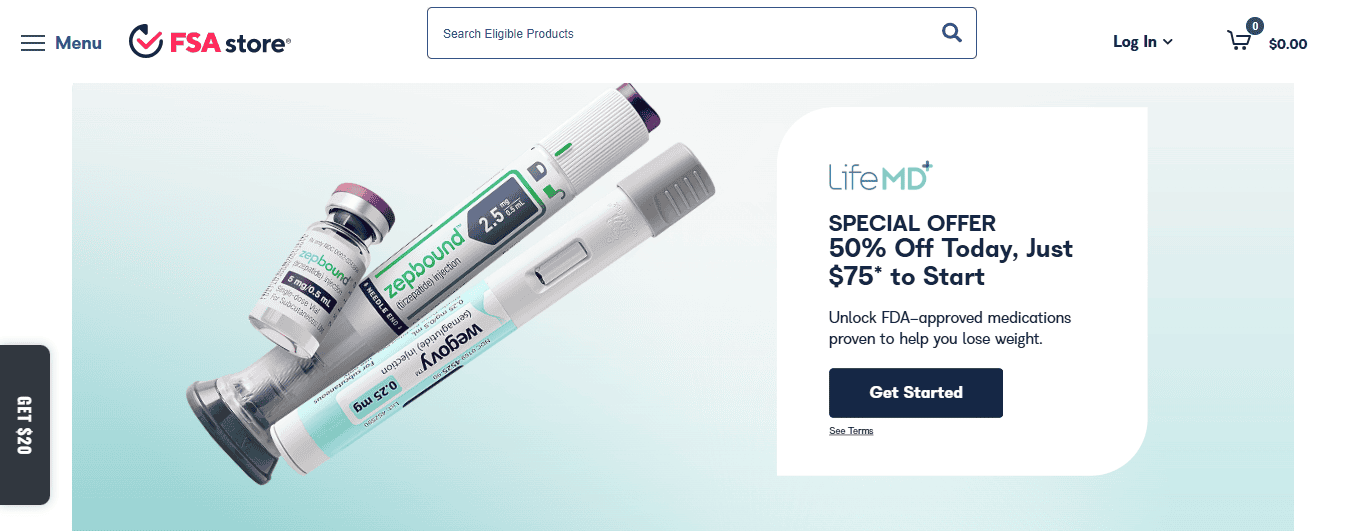
Ozempic (Semaglutide for Type 2 Diabetes)
- Treatment purpose: FDA-approved to manage blood sugar in adults with type 2 diabetes but often helps with weight loss as a side benefit.
- FSA/HSA use: Yes, as long as it’s prescribed for diabetes or related conditions and supported by a Letter of Medical Necessity (LMN).
- Cost reality: Retail price averages $900–$1,300/month without insurance. Being FSA/HSA eligible means you can pay tax-free, but only if you budget ahead (especially with FSAs).
Wegovy (High-Dose Semaglutide for Weight Loss)
- Treatment purpose: Specifically formulated for weight management and contains 2.4 mg semaglutide per dose.
- FSA/HSA eligibility: Yes, with LMN stating an obesity diagnosis.
- Out-of-pocket cost: Usually $1,300–$1,500/month retail. Since semaglutide is pricey, tapping pre-tax dollars makes a massive difference.
Saxenda (Liraglutide)
- Targets: FDA-approved for chronic weight loss; daily injection separate from the diabetes drug Victoza.
- FSA/HSA use: Yes, but of course…with an LMN. Doctors tend to prescribe it for hard-to-treat obesity.
- Typical cost: Around $1,200/month. Very likely, you’ll need to use benefit accounts for sustained use.
Contrave (Bupropion + Naltrexone)
- Mechanism: Combines an antidepressant (bupropion) and anti-craving med (naltrexone) to support weight loss.
- Coverage: FSA/HSA eligible with LMN. Works best alongside diet & exercise.
- Monthly cost: Usually under $600, making it more affordable than GLP-1 options but still eligible for pre-tax spending.
What’s the Difference Between FSA and HSA?


- FSA (Flexible Spending Account): You can contribute up to $3,050 per year (2025 limit). It’s use-it-or-lose-it, which means unused funds will expire at year’s end with no rollover.
- HSA (Health Savings Account): For people with high-deductible health plans, contribution limits are $4,150 (individual) or $8,300 (family) in 2025. HSA money rolls over year after year, and once you’re 65+, you can withdraw for any medical purpose penalty-free.
Leaving a job:
- FSAs usually end when your employment does, so you’ll have to spend or reimburse before your employment termination, or you lose the funds. Eek.
- HSAs are yours forever! Even if you switch jobs or retire.
What’s covered beyond weight loss drugs?
Both account types usually cover anything on IRS Publication 502, including over-the-counter pain relievers, medical equipment, and certain nutritional products associated with disease management. A simple example is diabetic testing strips or compression socks being FSA/HSA-eligible (a tip: if you can find it on FSAStore.com, that means it’s eligible).
Why this matters for semaglutide?
Understanding the fund type and rollover rules is so important. HSAs are more flexible and less stressful if you’re relying on medication like semaglutide for chronic conditions, but FSAs can cover high-cost prescriptions if you’re clever with your budget and use them before they expire.
Can I Use FSA/HSA for Other Weight-Loss Programs?
Yes, you can use your FSA or HSA for certain weight-loss programs, but only under certain conditions. Programs like WeightWatchers or doctor-supervised plans can qualify with an LMN stating it’s treating obesity or a related health issue. Gym memberships or diet supplements? Not covered. Sorry!
Tips to Maximize Your Pre-Tax Dollars
- Talk to your doctor early to get an LMN if semaglutide or another medication is right for you.
- Use FSAStore.com to verify eligibility and stock up wisely before year-end.
- Watch insurer rules on prior authorization and pharmacy options to avoid denied claims.
- Plan contributions strategically: If you have an idea of next year’s needs, remember that FSA is “use-it-or-lose-it” but HSA rolls over forever.
Other Ways to Use FSA/HSA for Weight & Metabolic Health
- Smart scales: Track weight, body fat, BMI
- Fitness trackers: Eligible if you provide usage rationale tied to medical advice.
- Continuous glucose monitors (CGMs): Covered under diabetes therapeutic supplies.
- Insulin pumps & test strips: Standard diabetes supplies.
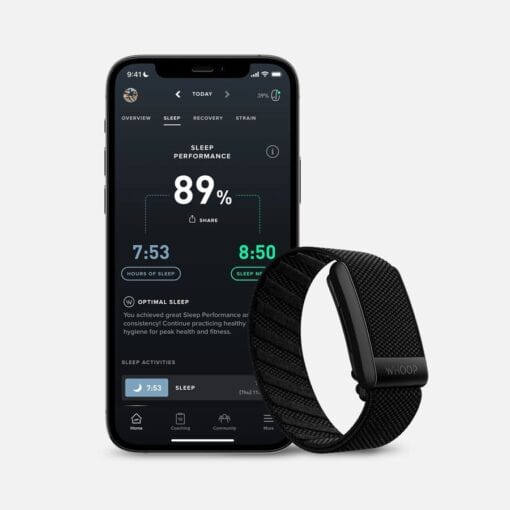
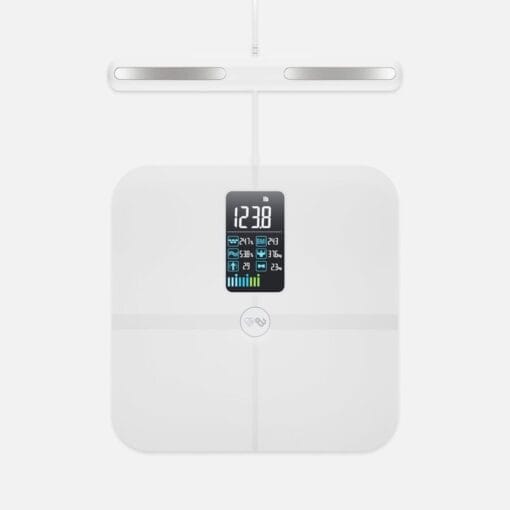
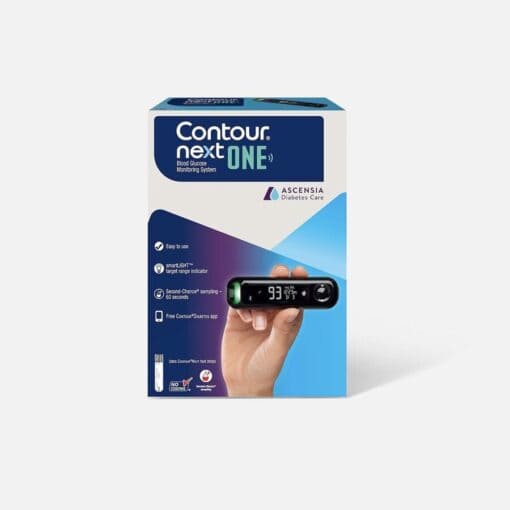
FAQ
Still have questions? Here are some common Q&As we see about FSA-eligible medications and products.
Can I get reimbursed for Wegovy or Ozempic if it’s for weight loss alone?
Only with an LMN that cites obesity or related conditions, yes.
Are OTC appetite suppressants FSA/HSA eligible?
No, supplements are usually ineligible regardless of their marketing.
What about medically supervised programs like WW?
Yes, but it has to be used for treating obesity with a doctor’s approval and LMN.
Can I use HSA or FSA for other weight-loss drugs?
Totally! Beyond semaglutide, medications like Zepbound, Saxenda, and Contrave are eligible, as long as they treat a diagnosed condition and you have an LMN. Even generic or compounded options can be covered. Always check your plan and ask your provider for documentation.
What is a Letter of Medical Necessity?
An LMN is a statement from your healthcare provider saying a treatment is essential for your health, it describes your condition, why the treatment is needed, and the duration of use. Absolutely needed for FSA/HSA coverage of prescription drugs and certain medical equipment.
Can I pay the doctor’s office with my FSA/HSA?
Yes, if the service is considered medical care, like initial diagnosis or weight-loss planning visits. Ask beforehand and make sure the provider uses an FSA/HSA-compliant payment processor.
Are receipts required? And for how long?
Always save receipts, receipts, receipts. FSAs usually require itemized proof for reimbursement. HSAs don’t require regular verification, but the IRS recommends keeping documents for at least 7 years, in case of an audit. Doesn’t hurt to hold on to them!
Can I use my FSA/HSA for telehealth weight-loss plans?
Absolutely! Virtual services like medical weight-loss coaching, subscriptions, or telemedicine consults can be covered if prescribed for medical necessity.
What about Ozempic vs Wegovy vs semaglutide dose changes?
Switching between brands or dosage levels doesn’t affect eligibility. Just grab an updated prescription and LMN reflecting the new plan. Your costs might vary, but it remains FSA/HSA-eligible if used for your medical condition.
What if my insurance partially covers semaglutide?
It’s still eligible. Use insurance for the portion it covers, and your FSA/HSA to pay any out-of-pocket balance. Keep receipts with both charges clearly itemized.
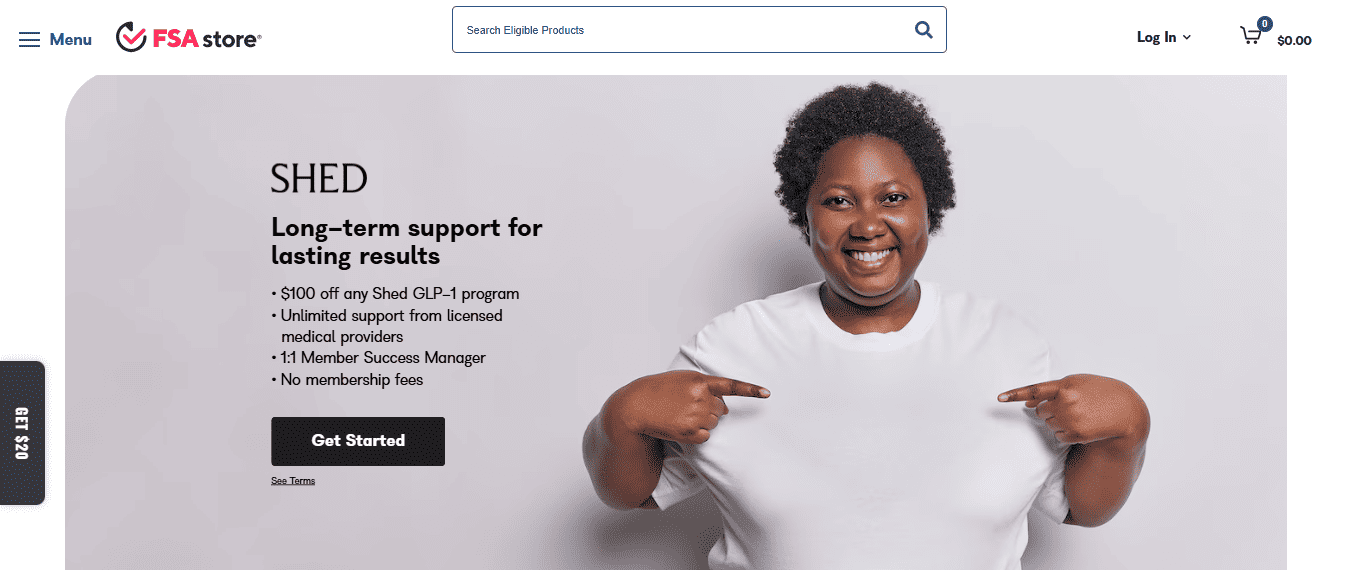
My Final Thoughts on FSA Eligible Weigh Loss Products
You can use your FSA or HSA to get semaglutide or similar medications, you just have to make sure it’s prescribed for a diagnosed medical need, with all the required documentation. These accounts are awesome tools for managing high medication costs, especially for chronic conditions. Hope our guide helped you figure out a plan! Be sure to share your thoughts in the comments and check out our other guides!







